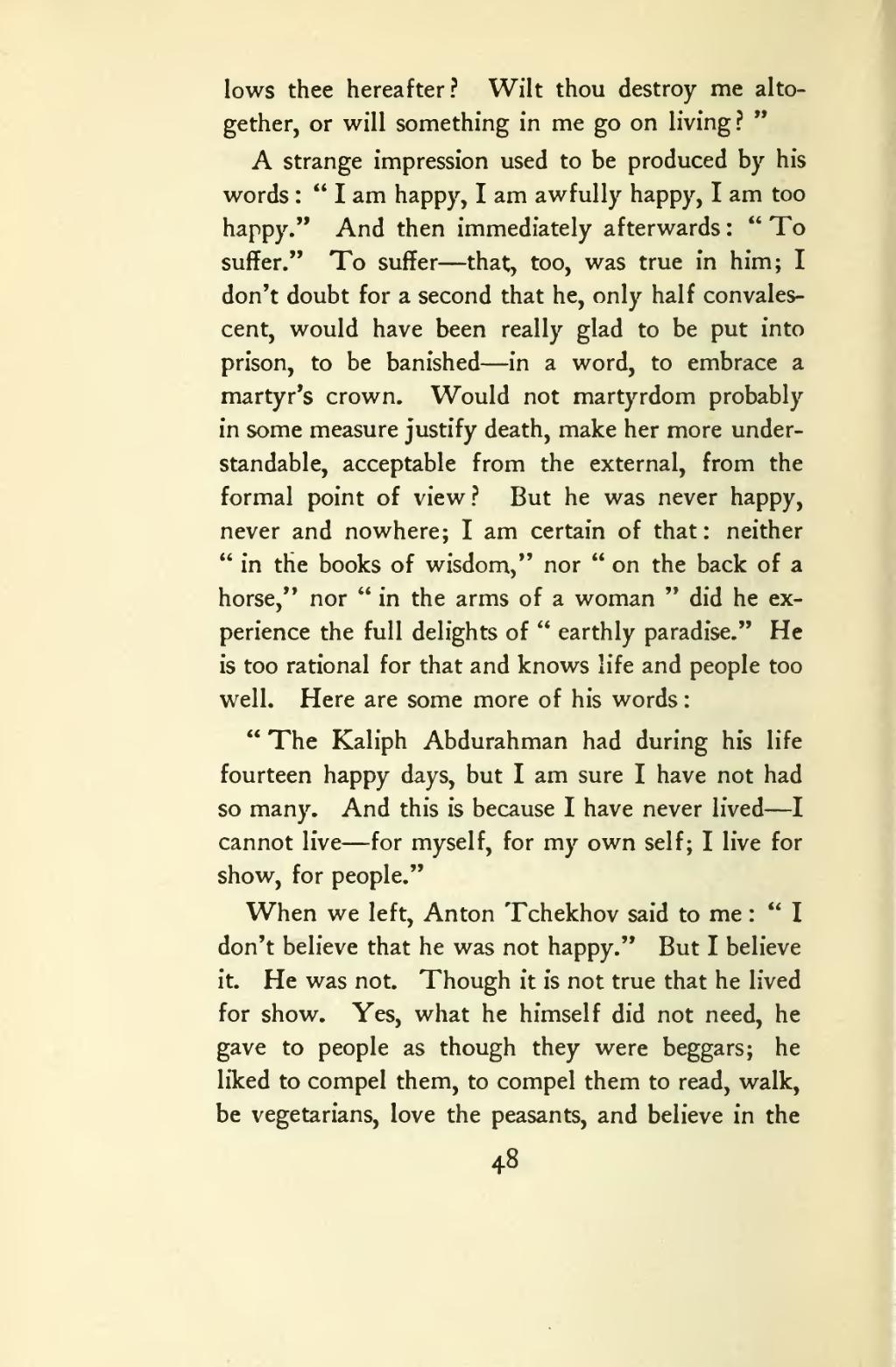lows thee hereafter? Wilt thou destroy me altogether, or will something in me go on living?"
A strange impression used to be produced by his words: "I am happy, I am awfully happy, I am too happy." And then immediately afterwards: "To suffer." To suffer—that, too, was true in him; I don't doubt for a second that he, only half convalescent, would have been really glad to be put into prison, to be banished—in a word, to embrace a martyr's crown. Would not martyrdom probably in some measure justify death, make her more understandable, acceptable from the external, from the formal point of view? But he was never happy, never and nowhere; I am certain of that: neither "in the books of wisdom," nor "on the back of a horse," nor "in the arms of a woman" did he experience the full delights of "earthly paradise." He is too rational for that and knows life and people too well. Here are some more of his words:
"The Kaliph Abdurahman had during his life fourteen happy days, but I am sure I have not had so many. And this is because I have never lived—I cannot live—for myself, for my own self; I live for show, for people."
When we left, Anton Tchekhov said to me: "I don't believe that he was not happy." But I believe it. He was not. Though it is not true that he lived for show. Yes, what he himself did not need, he gave to people as though they were beggars; he liked to compel them, to compel them to read, walk, be vegetarians, love the peasants, and believe in the
48
